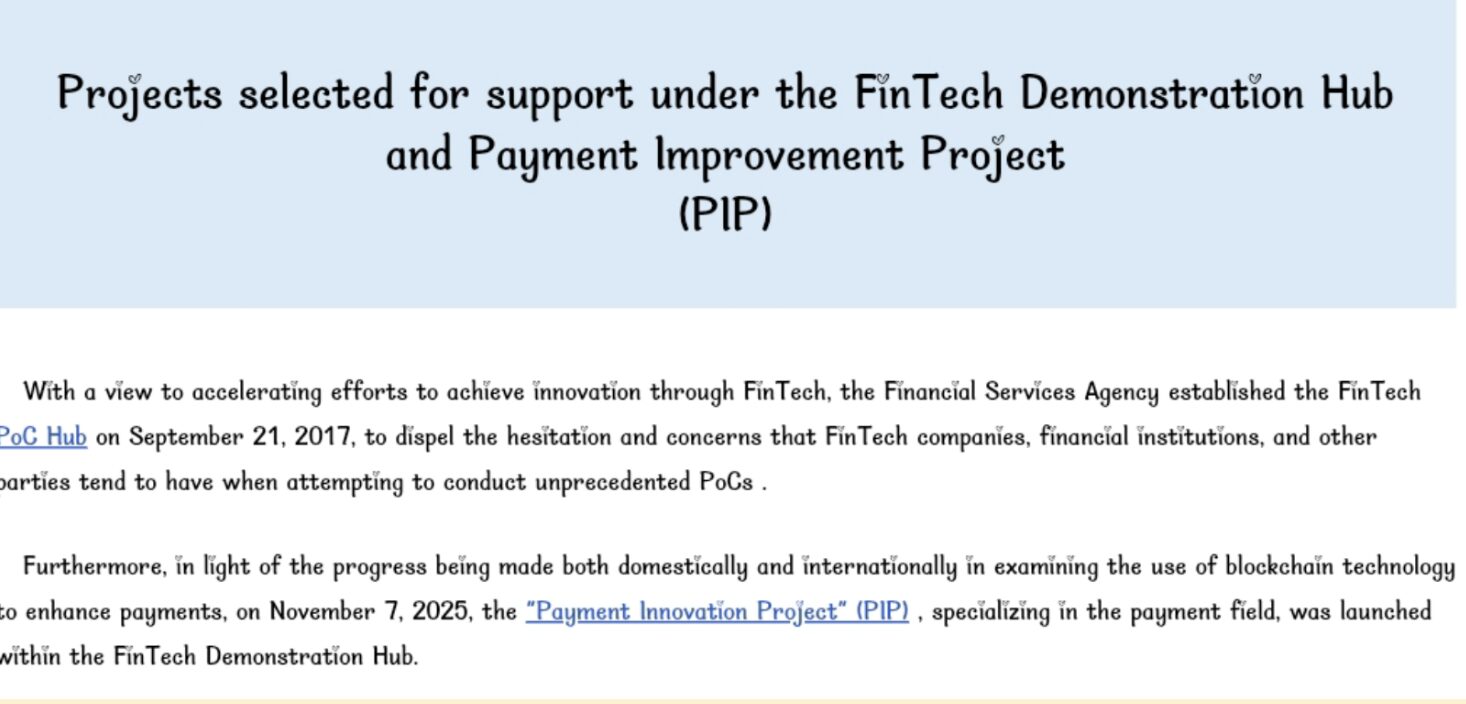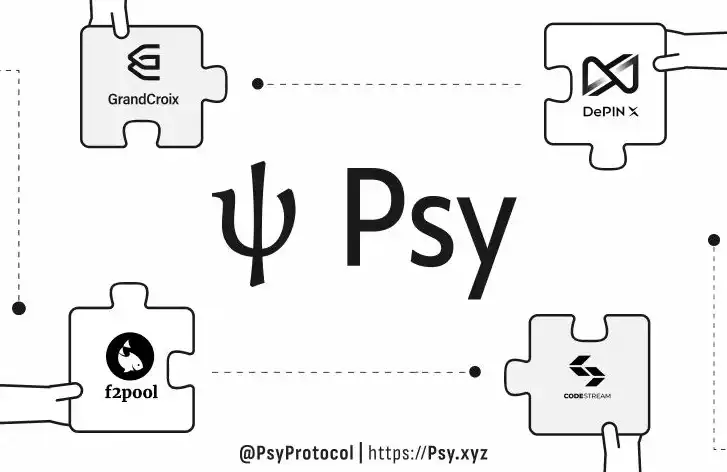Japanese Regulators Back Major Banks’ Push to Issue Yen-Backed Stablecoins
Quick Breakdown
- Japan’s FSA is backing a unified effort by major banks to issue yen-backed stablecoins.
- The initiative aims to modernize corporate payments and reduce settlement costs.
- The move aligns with broader regulatory steps aimed at deepening oversight while encouraging innovation in Japan’s digital asset ecosystem.
Japan’s Financial Services Agency (FSA) has thrown its weight behind a collaborative project involving some of the country’s largest financial institutions to issue yen-backed stablecoins, aiming to transform corporate payments.
Payment innovation project launched
In a statement released Friday, the regulator confirmed the launch of the Payment Innovation Project, which brings together Mizuho Bank, Mitsubishi UFJ Bank, Sumitomo Mitsui Banking Corporation, Mitsubishi Corporation and its financial subsidiary, alongside Progmat — MUFG’s blockchain-based stablecoin issuance platform.
 Source:
FSA
Source:
FSA
The move follows earlier reports indicating that these financial heavyweights are working to overhaul corporate settlement infrastructure. By leveraging yen-based stablecoins issued on the Progmat platform, they aim to reduce transaction costs and enhance the efficiency of business payments. Together, the involved institutions serve more than 300,000 corporate clients, positioning the initiative to have a meaningful influence on Japan’s financial system.
Beginning this month, the participating firms will start issuing payment-focused stablecoins designed to streamline operations, improve user convenience, and boost overall corporate productivity in the country. The FSA noted that once the pilot concludes, it will release findings and policy considerations to the public.
Growing stablecoin momentum in Japan
The announcement comes shortly after Tokyo-based fintech JPYC launched what it called Japan’s first approved yen-backed stablecoin, with seven companies reportedly preparing to integrate the token into their services.
Japan’s regulators have increasingly engaged with digital asset frameworks in recent months. The FSA is reportedly evaluating possible adjustments to allow banks to hold cryptocurrencies such as Bitcoin for investment purposes. Meanwhile, the country’s securities watchdog is preparing rules to identify and penalize crypto insider trading, expanding its oversight in the market.
At the same time, the tightening regulatory environment has influenced some market participants. Crypto exchange Bybit has recently paused new user sign-ups in Japan as it works to comply with evolving regulatory requirements. “It has always been Bybit’s commitment to operate responsibly and in compliance with local laws and regulatory expectations,” the exchange said.
Take control of your crypto portfolio with MARKETS PRO, DeFi Planet’s suite of analytics tools.”
Disclaimer: The content of this article solely reflects the author's opinion and does not represent the platform in any capacity. This article is not intended to serve as a reference for making investment decisions.
You may also like
Stellar Users Can Now Borrow USDC Using XLM as Collateral via Templar Protocol

Wintermute Market Outlook: Capital Inflows Stagnate, Market Enters Stock Game Phase
Global liquidity remains abundant, but funds have not temporarily chosen the crypto market.

Wall Street’s Calculation: What Does $500 Million Buy in Ripple?
Ripple's story has turned into a classic financial tale: about assets, valuation, and liquidity management.

Leading mining pools and hash power ecosystems join Psy Protocol testnet to jointly build a new generation PoW smart contract platform
Leading mining pools and computing power ecosystems such as F2Pool and DePIN X Capital have joined a PoW platform designed for the agent economy, which is capable of processing over one million transactions per second.

